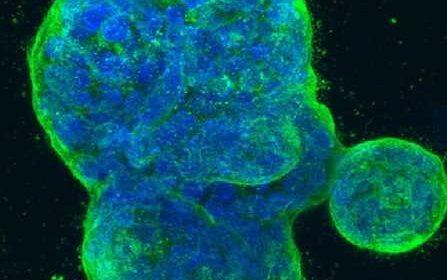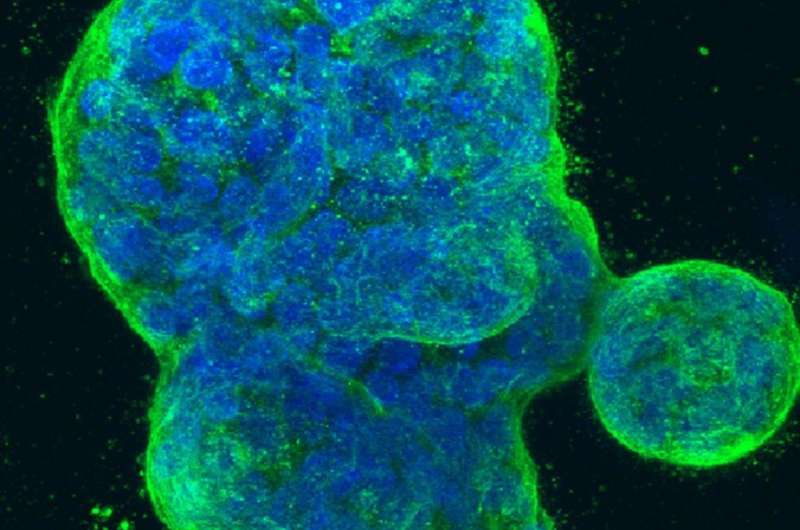Updated findings on a new approach to ER-positive/HER2-negative breast cancer

A UCLA Jonsson Comprehensive Cancer Center researcher and collaborators in a multicenter study will present updated results and plans for further research on a new approach to treating advanced ER-positive/HER2-negative breast cancer.
The study is the first-in-human, open-label, three-part study of ARV-471, alone or in combination with the drug palbociclib in patients with ER-positive/HER2-negative locally advanced or metastatic breast cancer. It was led by Dr. Sara Hurvitz, medical director of the Clinical Research Unit at the UCLA Jonsson Comprehensive Cancer Center, first author of an abstract describing findings that will be presented at the San Antonio Breast Cancer Symposium.
ARV-471 is a form of anti-hormonal therapy, or endocrine therapy. It is an investigational, orally administered PROteolysis TArgeting Chimera (PROTAC) that targets estrogen receptors by directly binding both them and an enzyme that triggers a chain of events leading to their degradation.
The standard approach—selective estrogen receptor degradation (SERD)—requires intramuscular injections, works only indirectly to change or immobilize estrogen receptors, and provides only 40% to 50% degradation at its optimal dose, according to the authors, citing previous studies.
The phase 1 part of this study was designed to evaluate safety, tolerability and dosing recommendations of ARV-471. The phase 2 portion, called VERITAC, included expanded cohorts to assess ARV-471’s effectiveness while also analyzing side effects and potential adverse events.
Results from the phase 1 and phase 2 studies showed that ARV-471 was well tolerated and could promote substantial estrogen receptor degradation even in patients with advanced disease and those who had previously received “heavy” treatment.
The phase 1b portion of the study, also underway, combines ARV-471 with palbociclib, an oral medication that inhibits cyclin-dependent kinase (CDK) 4 and 6, enzymes that stimulate proliferation of cancer cells.
Hurvitz said these studies have led to a randomized phase 3 VERITAC-2 trial that is being planned to compare ARV-471 with a SERD in patients with ER-positive/HER2-negative advanced breast cancer after prior endocrine therapy and a CDK4/6 inhibitor.
The study presented at SABCS is sponsored by Arvinas Estrogen Receptor Inc. Presentation development support was provided by Apollo Medical Communications and funded by Arvinas Operations Inc.
The SABCS abstract will be presented Thursday, Dec. 8. Anne Schott, University of Michigan Health, will be the presenter. Hyo Han, Moffitt Cancer Center, is the senior author.
Source: Read Full Article
